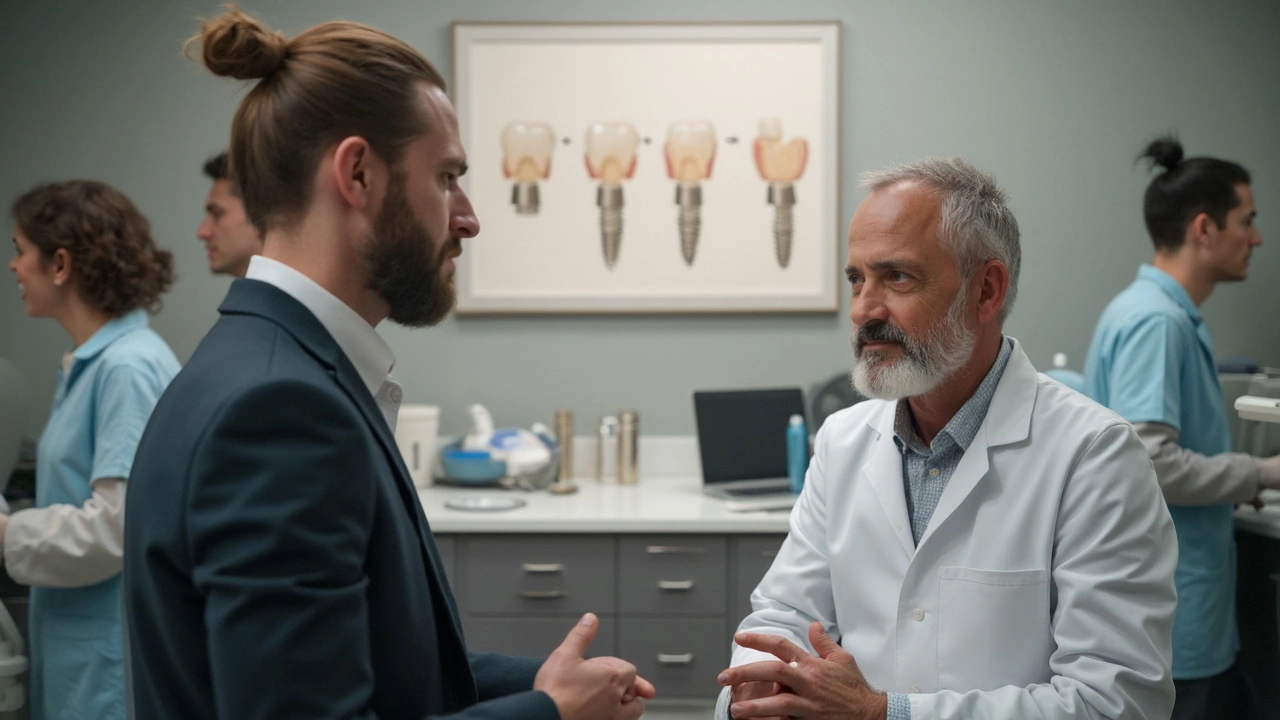Dental Care Basics: What Every Reader Should Know
Good dental care isn’t just about a bright smile – it’s about keeping your mouth healthy so you can eat, talk and feel confident. Most people think a quick brush and floss are enough, but there’s a lot more you can do to avoid costly procedures later.
First up, the daily routine. Brush twice a day with a soft‑bristled toothbrush and fluoride toothpaste. Spend at least two minutes each time – set a timer if you need to. Floss every night, even if it feels weird at first; it clears out food particles your brush can’t reach and reduces plaque.
When to Consider Dental Implants
If you’ve lost a tooth, implants can be a game‑changer. They act like a real tooth root, giving you stability for a crown or bridge. In the UK, the cost varies a lot – from a few thousand pounds per tooth to cheaper options abroad. Before you decide, ask yourself if you have enough bone density, if any medical condition might affect healing, and whether you can afford the upfront price.
Many people think age blocks them from implants, but that’s a myth. What matters most is bone health and overall health, not the number on your birthday cake. If you’re over 50, a quick bone scan can tell you if you’re a good candidate.
Finding Affordable Options
Dental implants can feel pricey, especially if you’re on a tight budget. Look for clinics that offer payment plans, NHS options, or dental tourism packages. Countries like Hungary, Poland and Turkey have reputable clinics that charge less while keeping quality high. If you travel, compare the dentist’s credentials, read patient reviews, and factor in travel costs before you book.
For those who can’t afford implants right away, temporary solutions such as removable dentures or fixed bridges keep your smile functional while you save up. Some UK dentists also offer “partial implant” plans where you replace one tooth at a time, spreading the cost.
Remember, the cheapest route isn’t always the best. Poor quality work can lead to infections, extra visits, and higher long‑term costs. Ask for a detailed treatment plan, see exactly what’s included, and make sure you understand the after‑care requirements.
Finally, keep up with regular check‑ups. A six‑month dental visit can catch problems early, saving you from major procedures later. If you notice bleeding gums, persistent bad breath, or a loose tooth, book an appointment right away – early treatment is usually cheaper and less painful.
In short, solid daily habits, smart choices about implants, and a clear eye on cost can keep your mouth healthy without breaking the bank. Use this guide as a checklist whenever you think about your next dental move, and you’ll stay ahead of problems before they start.












